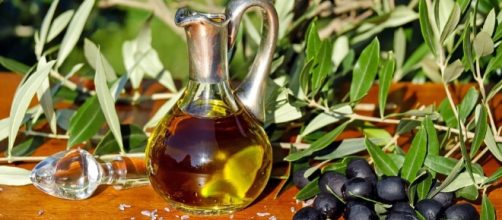Olives have more than five benefits for the human body and eating them is a healthy option as they can Prevent bone loss, prevent various cancers, reduce inflammation and also improve digestion.
People who eat olives wish to know how the benefits relate so here are some explanations about the benefits of eating olives.
- They improve digestion - olives are a healthy source of fiber, supplying almost 20 percent of the daily requirements for fiber in a single cup. For this reason, it helps in the proper functioning of your digestive system as it stimulates peristaltic motion in the intestines.
- Reduces inflammation - olives reduce inflammation throughout the body after eating them, which includes a reduction in pain and irritation in joints, muscles, and tendons
- Cancer prevention - Olives contain anthocyanins, which are positively connected to cancer prevention as an antioxidant and anti-inflammatory substance. Antioxidants defend the body against free radicals, which mutate healthy cells into cancerous ones, so adding as many antioxidants to your diet as you can, is the best way to avoid cancer.
- Bone loss- Olive contain a hydroxytyrosol compound which strengthens the bones and prevent them from breaking whenever there is an impact.
Harvesting and preparation of Olive
Olives are mainly green and black, but can also come in many different shades in between.
It is a type of fruit called a drupe. They're usually black when ripe, but some are brownish or green in color. Unlike other fruits, olives are bitter when mature and are typically cured to get rid of the bitterness by soaking them in water or a salt solution.
The difference in color reflects not only their variety but also the stages of ripening when picked. The color also determines when the olive should be picked. The green olives are harvested in October or November when still young, while the black olives are collected from December.
Choosing the best olives is very important considering the flavors of cured olives vary considerably. The best tend to be sold loose - which also allows you to try the different flavors before you buy.
In general, green olives are the best and firmest, with a sharper taste. Good varieties to look out for include juicy Queen or small Manzanilla olives.
Black olives are also considered to be best for you as they were given a longer time to ripen and contain a higher oil content. This also gives them a milder flavor and softer texture.
Olives can be sold in either jars or grocery stores at self-service counters.
Storage and cooking of Olives
The storage of olives must be observed as it's imperative that the olive should be stored in a cool, dark place until opened. They'll last up to 12 months. When preparing meals olives can be chopped and added to salads, pasta, or stews, or use to top pizza. Olive Oil can be used to replace butter on bread and can be used for light braizing of meat.


